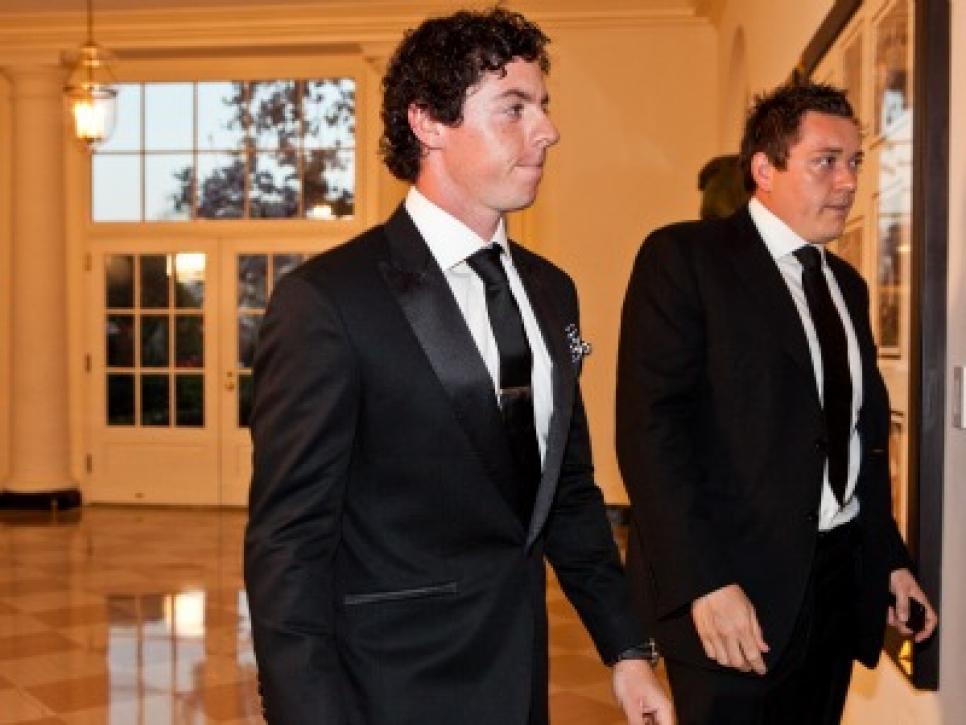News
Explainer: A crash course on Rory McIlroy's court case against his former agents
While the details of Rory McIlroy's legal action against his former agency, Horizon Sports Management, have been trickling out this week, some confusion still remains. We thought it would be useful to take a step back and explain what exactly is going on:
How did this all start?
When Rory McIlroy turned professional, he did so with Andrew "Chubby" Chandler, the super agent who also represents Lee Westwood, Ernie Els, Charl Schwartzel and Louis Oosthuizen, among others. In October 2011, a few months after winning the U.S. Open, McIlroy moved to the Dublin-based company Horizon Sports Management, who had been representing his friend Graeme McDowell since 2007. Under Horizon, Rory won his second major, the 2012 PGA Championship, became the World No. 1 and signed a five year, $20 million-a-year equipment deal with Nike.
Sounds good so far, so what's the problem?
In May, the New York Times profiled McIlroy and Horizon, two weeks before he split with the company to form his own management agency. "I think it's a good thing for me that I'm with a smaller company," McIlroy said in the article. "They are always looking out for what's best for me."
What McIlroy didn't say was that he and the company were on the verge of splitting. The reasons for the move were at first unclear, with members of the McIlroy camp only said that his father would play a more prominent role in the new company. Only when McIlroy filed suit against Horizon on October 14th was it revealed that the former World No. 1 felt he was coaxed into signed a "limiting" deal with the company (and at the office Christmas party, to make matters stranger -- more on that later). McIlroy also said in a statement that his agent, Conor Ridge (picture below), and Horizon were "primarily concerned with maximizing their own share of any commission." Translation: McIlroy felt he was unfairly paying too much money to his agents.

The contract with Horizon, which McIlroy calls "unconscionable" and says he was coaxed into signing, cost him about $6.8 million in fees. McIlroy also says that he was pushed to sign his deal with Horizon at an office Christmas party and that Horizon also made a $166,000 donation to UNICEF without his knowledge or consent. McIlroy is trying to break his contract and recoup the money he feels is owed to him by suing Horizon.
Horizon, on the other hand, is defending itself by pointing to its role in negotiating the Nike deal and other endorsements, worth about $130 million over the next five years. Horizon is also countersuing McIlroy for $2.4 million in unpaid fees.
So what happens now?
The provisional date for the trial has been set for next October 2014, so expect this news to linger as both sides prepare their case. It's possible that both sides may reach a settlement -- an out-of-court agreement where both sides voluntary decide on a fee to pay each other in exchange for throwing out the case -- but so far there are no indications that could happen. The questions will likely grow quieter in the future, but until a conclusion is reached in this case, Rory won't be able to shake them entirely -- especially if his slump continues. In short, if Rory wants to shake the news, he better start playing well sooner rather than later.